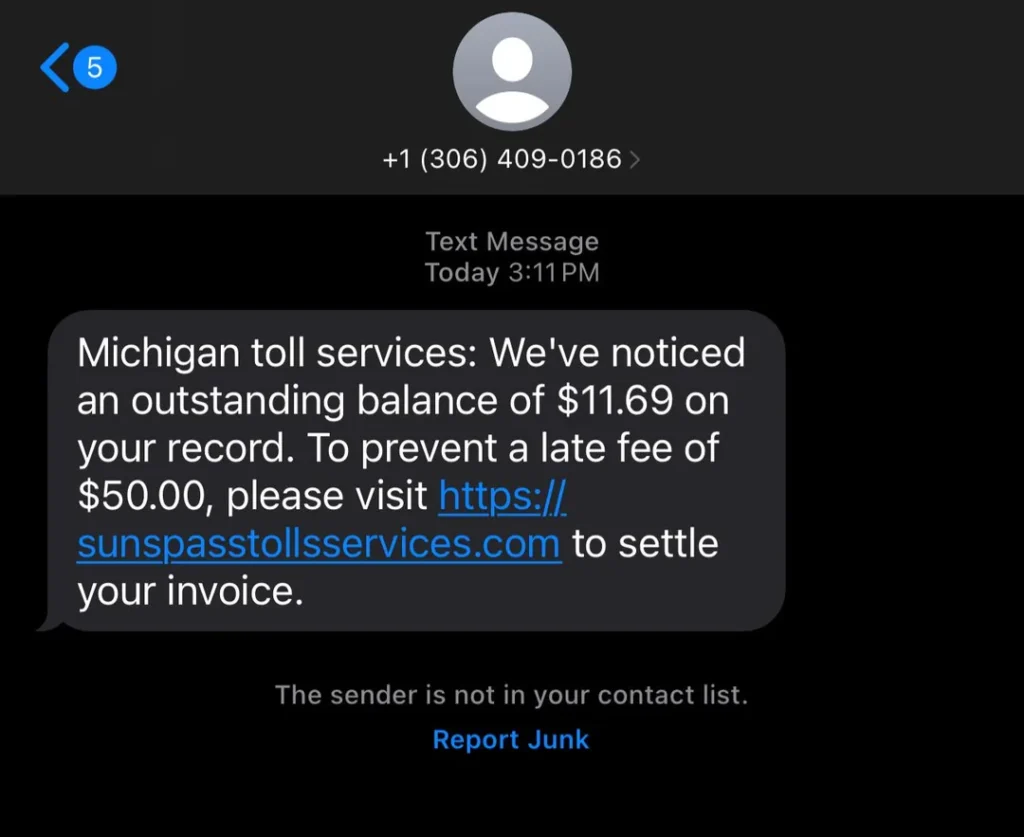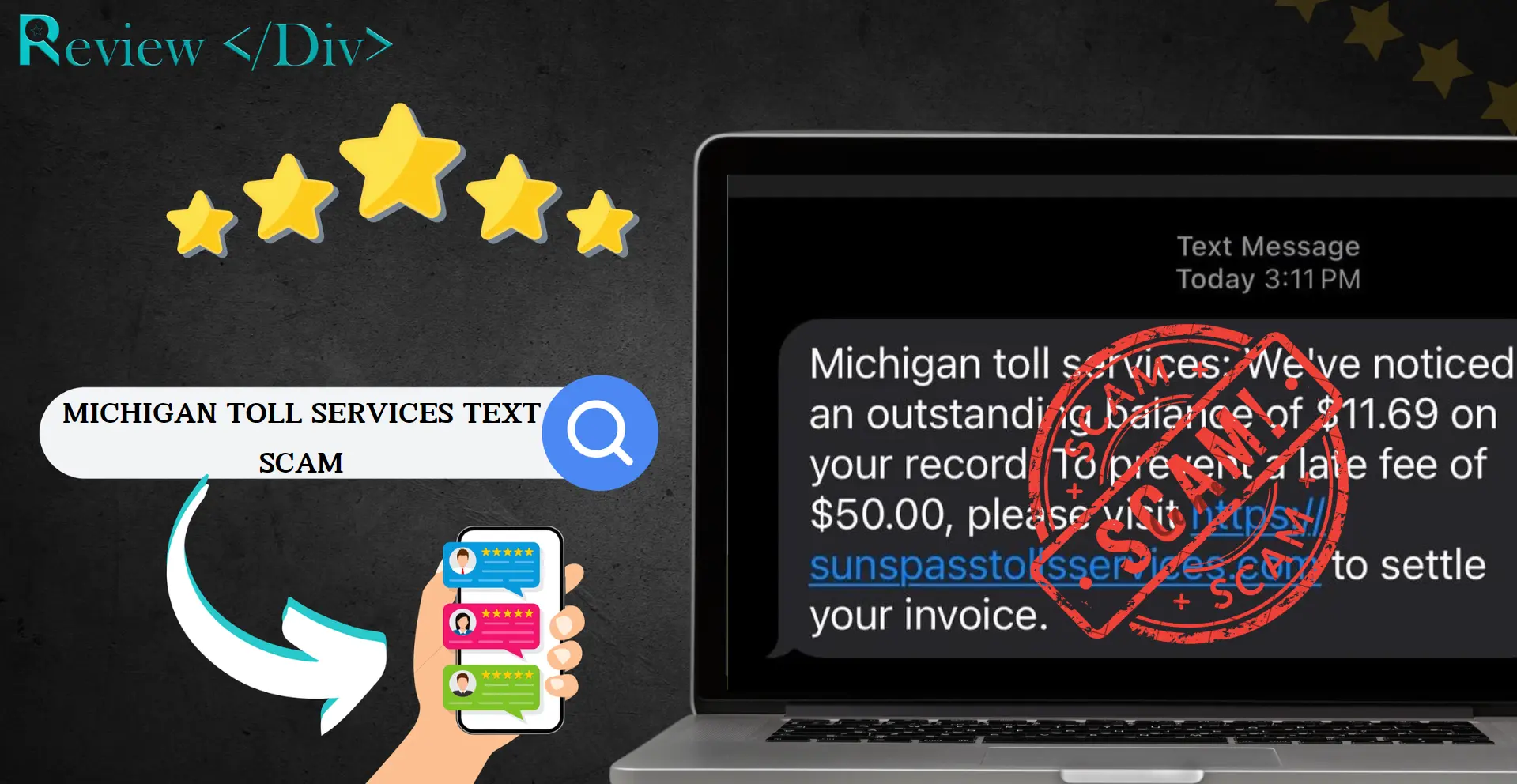Recently, Michigan residents have become the target of a new scam that involves fake toll road fee claims. This scam is delivered through text messages that try to mislead people into paying toll fees that don’t exist.
Scammers pretending to be from “Michigan Toll Services” have raised the alarm among residents and officials, which targets state authorities to issue warnings and advisories to the public.
Michigan Toll Services Text Scam Overview
Many Michigan residents have received unexpected text messages telling them they owe a small toll fee of around $12. The messages threaten a steep late fee of $50 if the payment isn’t made quickly.
These texts come from out-of-state numbers, which shows they are not legitimate. The danger lies in the link in the message, which claims a way to pay the fee.

However, clicking on this link can put your personal and financial information at serious risk which becomes easier for scammers to steal your data.
How Does Michigan Toll Services Text Scam Work?
The Michigan Toll Services scam begins when someone receives an unexpected text message claiming they owe a toll. The message mentions a small amount of $11.69 and warns that if the fee isn’t paid, a much larger late fee of around $50 will be charged.
To create a sense of urgency, the text includes a link, guiding the recipient to pay the alleged debt right away.
These scam messages are crafted to look authentic and copy the style, wording, and tone of official tolling agencies. They include fake details like due dates and even the name of a toll service.
However, the scam’s biggest giveaway is that Michigan doesn’t have toll roads. Although there are tolls for some bridges and tunnels, it’s uncommon for unpaid toll notifications to be sent by text, which should immediately alert residents that something is wrong.
The links in these texts direct recipients to fake websites that resemble legitimate toll payment portals. Once on the site, victims are asked to provide personal information such as their driver’s license number, credit card details, or even social security numbers. Scammers then use this information for identity theft or financial fraud.
How to Protect Yourself From Michigan Toll Services Text Scam?
Here are some tips to help you protect yourself from this scam and other similar toll text scams.
Verify the Source: If you receive a text message claiming you owe money for unpaid tolls, do not click on any links. Instead, contact the relevant tolling agency directly through a known and legitimate phone number or website.
Report the Scam: Use your phone’s “report junk” feature to flag the message in your messaging app. Additionally, forward the suspicious text to 7726 (SPAM), which helps mobile carriers identify and block similar messages.
Avoid Engagement: The best response to these scam messages is to delete them immediately and not reply. Engaging with scammers increases the risk of further attempts to defraud you.
Educate Others: Scammers succeed in confusion and lack of awareness. By sharing information about this scam with friends, family, and colleagues, you can help protect others from falling victim.
Use Security Tools: Secure your devices have up-to-date security software to detect and block phishing attempts and malware. Regularly update your passwords and consider using multi-factor authentication (MFA) on your accounts for added security.
How to File a Complaint in Michigan?
If you’ve been targeted by this scam or any other consumer protection issue, you can take action by filing a complaint with the Michigan Attorney General’s Consumer Protection Team. Here’s how you can do it:
File Online: To submit a complaint online, go to the official portal at Secure.ag.state.mi.us.
Call by Phone: You can also contact the Consumer Protection Team directly by calling 517-335-7599 or toll-free at 877-765-8388.
For more information on how to protect yourself and resolve consumer issues, visit the official Michigan government website at michigan.gov/consumerprotection.
Jason Thomas is a Computer Science student specializing in AI & ML, dedicated to safeguarding individuals from online threats. Passionate about exposing internet scams, Jason spends his free time identifying and reviewing various fraudulent activities and unethical materials. With a unique blend of theoretical knowledge and practical application, he is a valuable contributor to the fight against online fraud. His commitment to technology and programming fuels his mission to protect people from scams and enhance internet safety for everyone.







